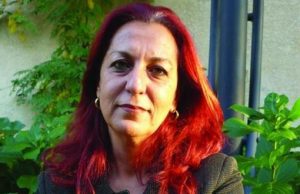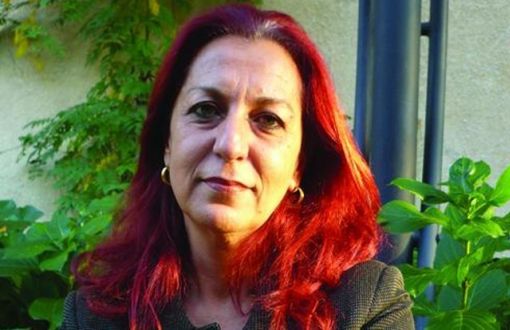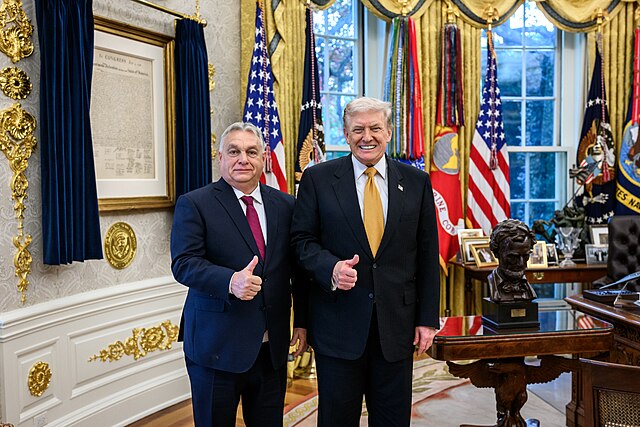[vc_row][vc_column][vc_column_text]UPDATE: Prof. Zübeyde Füsun Üstel, whose 1 year and 3 months prison sentence was upheld on 25 February 2019, is due to begin her prison sentence within ten days, Frontline Defenders reported on 30 April 2019.[/vc_column_text][vc_column_text]

Zübeyde Füsun Üstel
A Turkish academic, who was given a 15-month jail sentence for signing a petition calling for peace in south-east Turkey, has had her sentence upheld and now faces prison. She is likely to be the first academic to be imprisoned for signing the petition.
Zübeyde Füsun Üstel’s 15-month jail sentence, originally imposed in April 2018 for signing a petition drafted by Academics for Peace, was upheld by the Turkish Court of Appeals on 25 February 2019. Üstel is a retired professor from Galatasaray University in Istanbul.
This decision by the appellate court means that she is in danger of being imprisoned very soon.
The peace petition — We Will Not Be a Party To This Crime — was initially signed by 1,128 academics and grew to 2,020 in the weeks after it was released in January 2016. Since then, the signatories have been subjected to a range of actions against them, including criminal and administrative investigations, detention, dismissals and revocation of their passports. As of December 2017, more than 400 academics have been dismissed and hundreds of PhD students have lost their scholarships.
Academics for Peace is an organisation of university professors and graduate students who drafted and launched the petition, which denounced the human rights violations committed by the government in the Kurdish regions of Turkey, demanded access to these areas for independent national and international observers, and called for a lasting peace to be secured.
“I think Professor Fusun Üstel’s case is a new illustration of the criminalisation of free speech in present-day Turkey,” said Noemi Levy-Aksu, an academic for peace whose case is still pending.
Üstel was the first academic to refuse the legal provision the courts offer when prison sentences are less than two years. The provision involves suspending the pronouncement of judgment for a period of five years, during which the defendant is supposed to refrain from committing further “crimes”. Since what constitutes a crime in Turkey can be arbitrarily changed or determined by the political establishment, this provision aims to discipline defendants by placing them under supervision by the government. However, the advantage to the provision is that the suspect is left with no criminal record, barring their good behavior.
In her court hearing in April 2018, Üstel refused the offer of a suspension and was consequently sentenced to 15 months in prison. She appealed, but it was rejected on 25 February. She could become the first academic to be imprisoned since the trials began in December 2017. Nine other academics have refused the suspension provision and are waiting to appear before the court of appeals, according to the Academics for Peace website.
Following the confirmation of Üstel’s sentence, new initiatives have been started to raise awareness about her and all of the other Academics for Peace cases.
“An open letter has been endorsed by Academics for Peace-US and UK, academic and human rights organisations and more than 1500 academics from all around the world. Other initiatives are ongoing, especially in Germany, France, the US and the UK, where many academics from Turkey are now based,” said Levy-Aksu.
Investigations were opened by the government individually against each petition signatory on charges of “conducting propaganda for a terrorist organisation.” This is the charge professor Üstel is currently facing, as per the Article No. 7/2 of the Anti-Terror Law No. 3713.
Some judges, including one dissenting judge in Üstel’s appeal case, believe the academics should not be tried under the anti-terror law on the charge of propagandizing for a terrorist organisation. Instead, they argue that Üstel’s and other cases should be considered as per the Article 301 of the Turkish penal code on the charge of “degrading the state of the republic of Turkey”.
“From the beginning, the trial of the Academics for Peace relied on very shaky grounds, both in terms of procedure and substance. The inconsistency of the decisions taken by the different courts show the arbitrariness of the process. Verdicts have been erratic and varied from 15 to 36 months imprisonment,” said Levy-Aksu.
Almost 600 of the signatories are currently undergoing trials on grounds of engagement in “propaganda for a terrorist organisation.”
Üstel published a series of articles in Turkey-based and international journals of social sciences. Her articles have mostly focused on the history of Turkey, nationalism and issues of identity.
Since its founding in 2012, Academics for Peace has organised different actions to highlight attacks on the Kurds in south-east Turkey, and to call for the Turkish government to change its policy towards the Kurds. In 2012 it issued a statement showing support for Kurdish prisoners’ demands for peace in Turkey. This statement was signed by 264 academics from over 50 universities.
Since January 2016 when they published the peace petition, the Academics for Peace case has remained a symbol of the ongoing crackdown on the right to protest and speak out against the government in Turkey.
“In the current circumstances this will highly depend on governmental policy. The other venue to challenge the decision is the European Court of Human Rights, before which several applications have already been brought,” said Levy-Aksu.[/vc_column_text][/vc_column][/vc_row][vc_row][vc_column][vc_basic_grid post_type=”post” max_items=”12″ style=”load-more” element_width=”6″ grid_id=”vc_gid:1556799978592-db3cfbd5-6c56-0″ taxonomies=”7355, 8607″][/vc_column][/vc_row]





